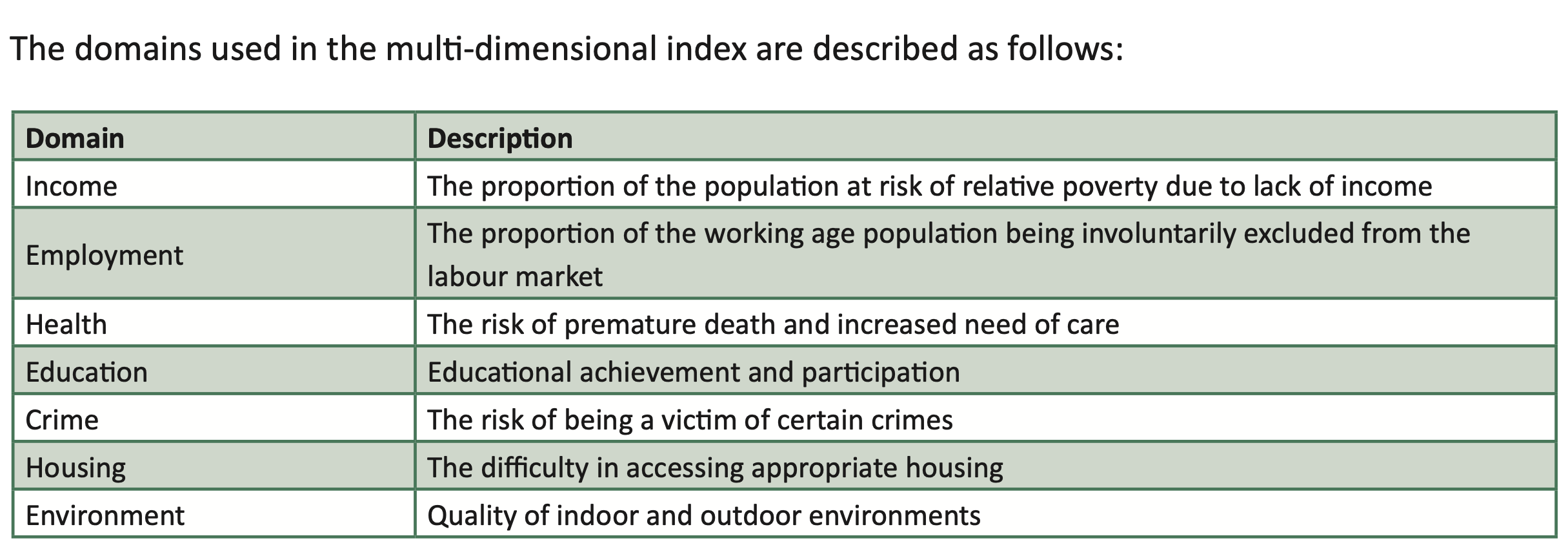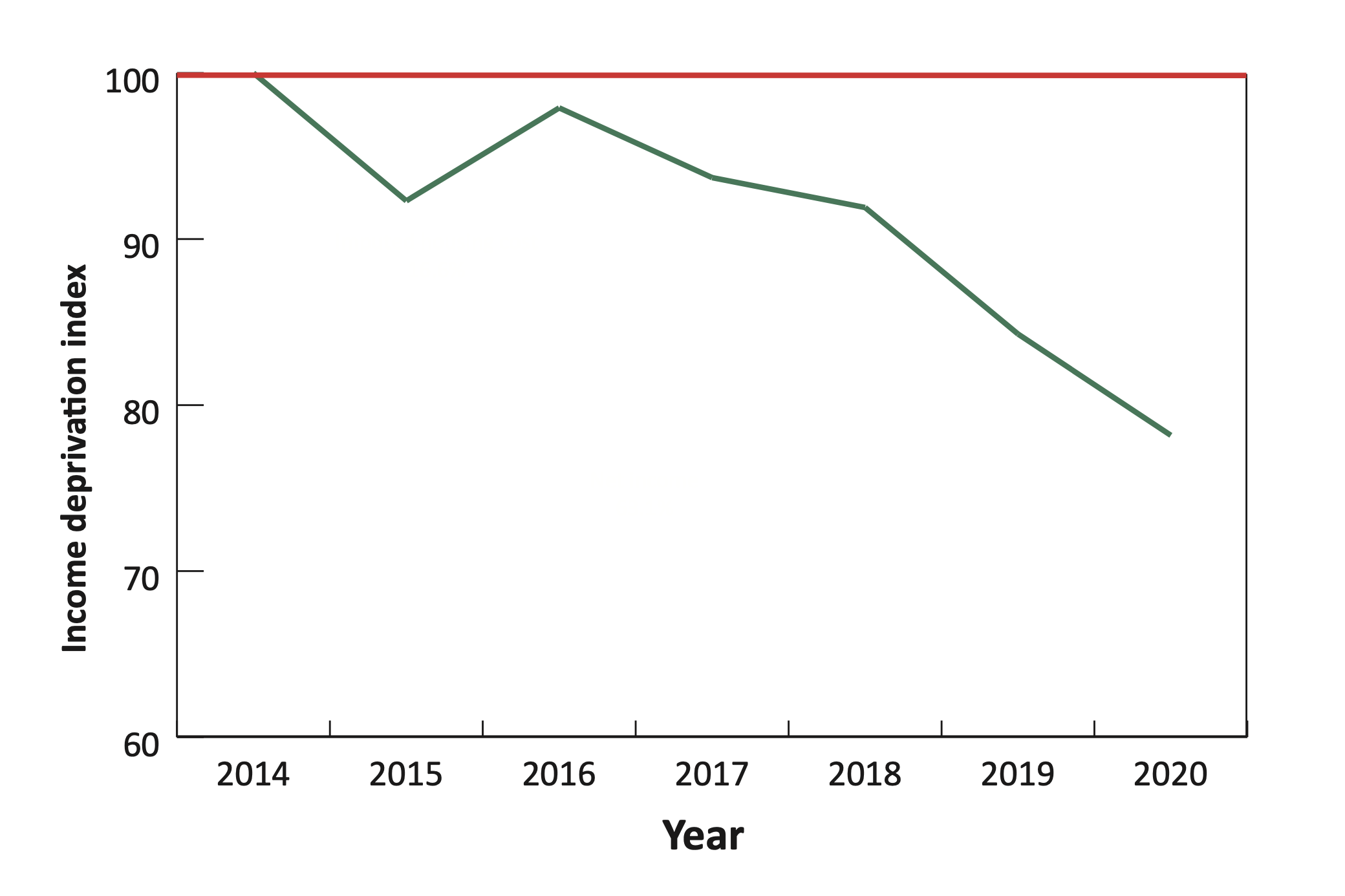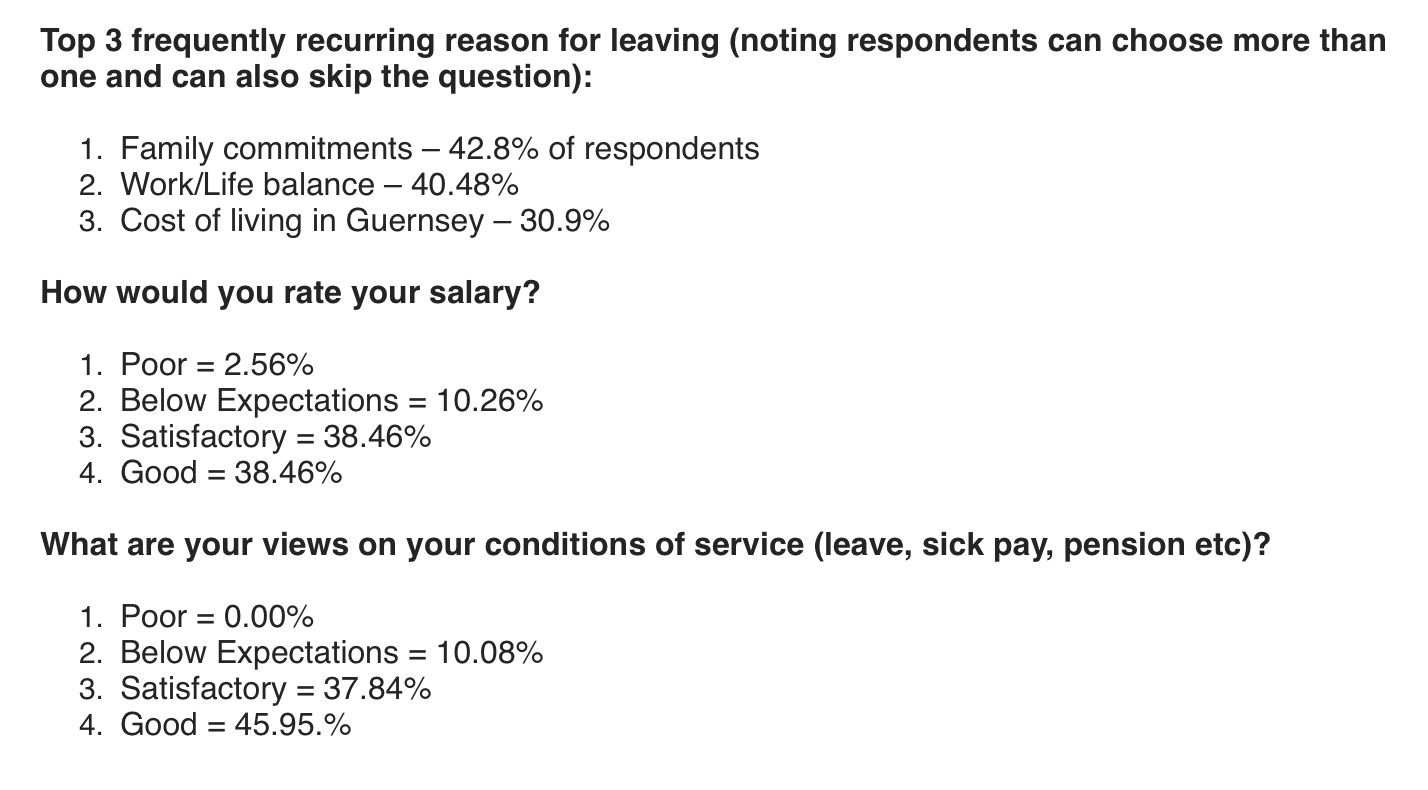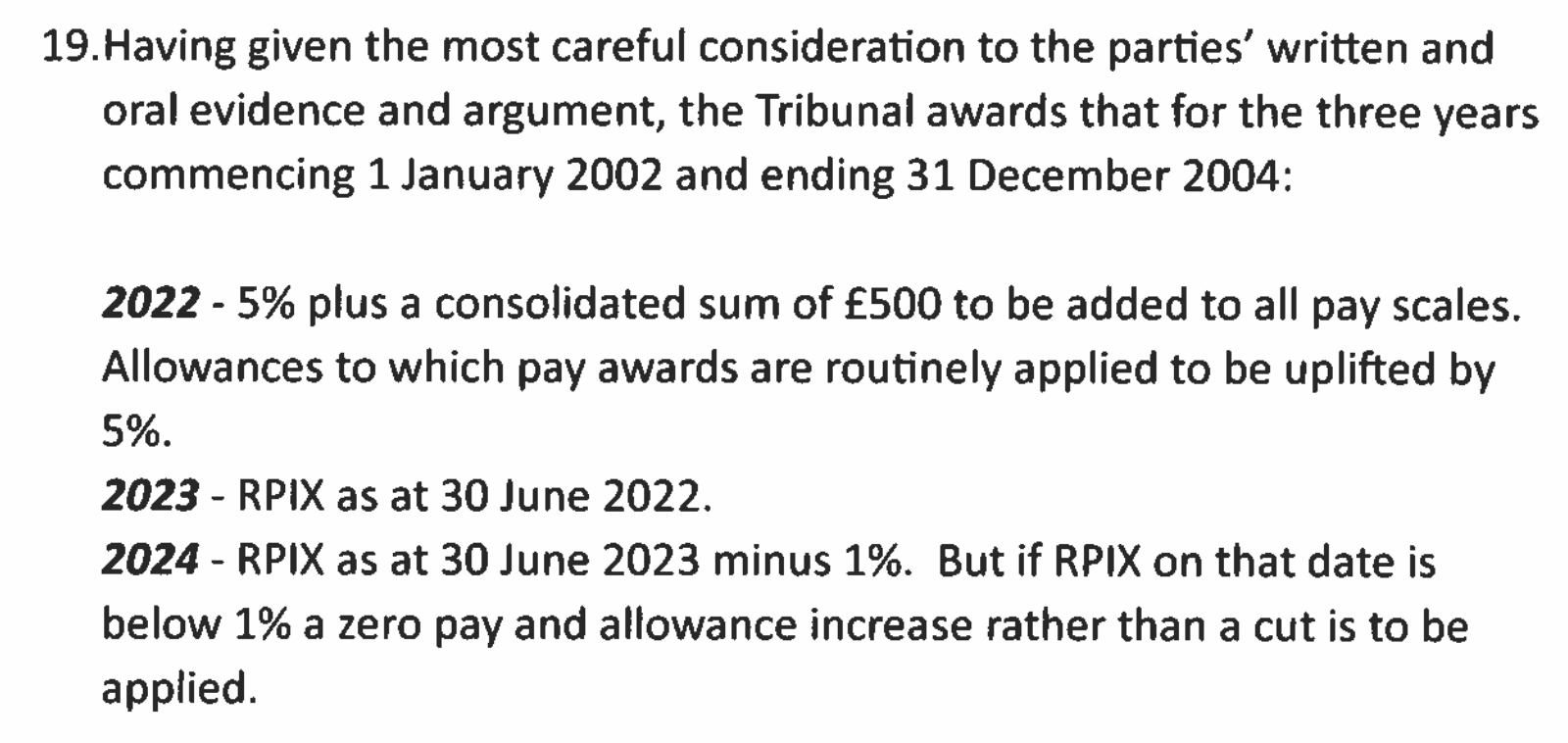


The term 'relative poverty' was used frequently during the recent Tribunal deciding teachers' pay rises, but what does it mean, and how many teachers are in that situation? We tried to find out.
The term 'relative poverty' is subjective as what may be classed as a sign of poverty for one person may not be by comparison to another person's reality.
A number of definitions of relative poverty are readily available and all give a very similar example of what the term means.
"Households are considered to be below the UK poverty line if their income if 60% below the median household income after housing costs for that year," according to Trust for London.
End Poverty says relative poverty "is established in relation to the economic climate in which one resides", while Habitat for Humanity states: "Relative poverty is when households receive 50% less than average household incomes. So they do have some money but still not enough money to afford anything above the basics. This type of poverty is, on the other hand, changeable depending on the economic growth of the country."
The Joseph Rowntree Foundation says relative income poverty is "where households have less than 60% of contemporary median income".
The States of Guernsey told us - in response to questions about teachers claiming to live in 'relative poverty' that:
"...the definition used by the States is people living in households with equivalised household income, after taxes and housing costs, of less than 60% of the median. (NB: equivalised household income means income calculated after bigger households have been adjusted downwards and one person households upwards, so they can be better compared with each other – i.e. as if they were all two adult, no children households.) Official measures of relative poverty are always applied on a household basis and individual earnings are never used to determine whether an individual is at risk of income deprivation."

Pictured: The States of Guernsey uses set parameters to measure income and affluence.
The States of Guernsey consider income and living costs to create an overview of living standards in the island. This includes looking at expenditure on housing costs, doctor's appointments, shopping bills and other outgoings.
The data is collated from several sources including the Rolling Electronic Census, the Law Enforcement Annual Report, Public Health Services, Education Services and the Office of Environmental Health and Pollution Regulation.
This dates back to 2016 when the States agreed to “improve and broaden the measurement of relative poverty” to give a more accurate and rounded picture of potential deprivation.
In recent years, according to figures available on the gov.gg website the number of households in relative poverty has decreased steadily in Guernsey.

Pictured: The above graph is available along with other data at gov.gg
In considering income, Guernsey sets relative poverty levels as anything below 60% of the island's median income.
The median net equivalised annual income in 2020 in Guernsey was an estimated £18,527 in 2020.
Therefore, anyone earning below £18,527 per year would be classed as living in relative poverty if the contributing factors of their living expenses eat in to their income too.
During the Tribunal last month, teaching unions said there are a number of "low or middle ranking teachers" in Guernsey whose income drops below 60% of the median income in the island when they've paid their rent/mortgage - that would put them in 'relative poverty'.
Some teachers are said to be left with as little as £489 a month to live off after they've paid their housing costs, which the teaching unions said has left some of the staff feeling like they've "had enough".
According to States data for 2020 - available at gov.gg - 27% of household income was spent on housing on average. This is well above the OECD average and confirms what many already know in that housing in Guernsey is expensive.
In 2020, 14.8% of households in Guernsey had an income of less than 60% of the median, meaning around 9,000 people were classed as living in 'relative poverty' in the island during that year.
There are an estimated 600 teachers working in Guernsey and they will be employed across different pay bands. Express questions over how many teachers are classed as 'low or middle ranking' could not be answered due to staff confidentiality.

Pictured: Teaching unions said staff are leaving because of poor pay but information provided by the States said that was not a credible argument during the Tribunal.
Express asked to see the exit interviews teachers have given which were referenced during the Tribunal by both the unions and the States panels.
Copies were not forthcoming because they are deemed confidential documents, however some statistics were provided. They are reproduced below as they were given to us.
A spokesperson for the States said that: "The data provided at the Tribunal from exit interviews on the reasons for leaving, relates to teachers or lecturers only and covers the period 1 January 2020 to today."

Pictured: Data collated through exit interviews carried out with teachers and lecturers leaving their positions in Guernsey.
During the Tribunal last month, teaching unions - represented by Advocate Michael Adkins - said that teachers were leaving their jobs because of their pay. It was claimed that teachers have suffered pay erosion since 2008 and that a larger pay rise than what had been offered was needed to ensure their pay remained on track with where it should be.
Advocate Adkins had urged the Tribunal Panel to look at the facts.
"Teachers are paid far less today than they were in 2008 in real terms," he said. "We have given examples of the impacts of that."
"It is the actual experience of teachers," he added.
He cited the turnover of school staff as proof that teachers are leaving over their pay, but the States representatives said that wasn't true and that exit interviews showed that pay was not a contributory factor in staff resigning.
Individual exit interviews and teacher’s pay scales are not in the public domain but the above statistics provided by the States suggest that teachers leaving their roles do so for reasons other than their pay.

Pictured: The Tribunal found in favour of the States pay award.
The teachers lost with the Tribunal deciding that the States pay offer was reasonable.
The binding award was made and teachers received a three-year deal which they had argued against for more than a year.
Teaching union the NASUWT told Express that it was disappointed with that result and that it remains in dispute with the States of Guernsey over staff pay and conditions.
Teachers: "Our dispute with the States continues"
Teachers lose: pay deal settled
Some teachers claim to be living in poverty
Teachers and States to go head to head
"Very fair award" remains open to teachers
Teachers could 'work to rule' in pay row
Teachers could strike over pay dispute
Teachers "seriously considered" quitting
Teachers' union: “Failure to commence negotiations in good time is unacceptable"
States want staff vote on pay deal
Comments
Comments on this story express the views of the commentator only, not Bailiwick Publishing. We are unable to guarantee the accuracy of any of those comments.